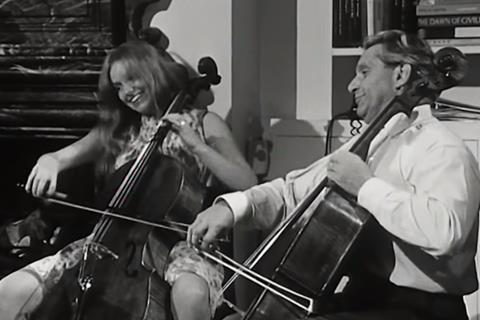The late British cellist and teacher of Jacqueline du Pré spoke to The Strad in June 1996 at the age of 80

On teaching methods
‘Methods? You can’t have methods when you're dealing with human beings who are all different! You have to treat them all differently. If you have methods you encourage copying and I don’t believe that a teacher should allow his pupils to copy anything. It was the greatest quality in my teacher Julius Klengel, which is almost a negative thing. He had no gimmicks. I had my last lesson with him when I was 16 and I've never had a lesson since. I've had to grow out of myself and I'm eternally grateful that I'm not a copy of anybody.'
On practice
‘I am very much opposed to over-practice because it is so easy to practise mistakes - they get into your bones and you never forget them. Students need leeway to develop their own personalities. I don’t want reproductions of me. I can’t bear the attitude of 'Here are my fingerings and bowings, now go and practise them'.’
On psychology
‘We discuss the music, then the drama and then the lyrical quality together and then I work towards helping the student achieve these qualities within his or her individual personality. I have to help that personality to bloom. The entire study business is for me a study of each human being - one has to be a psychologist to understand one's students.’
On the responsibility of the teacher
'I once recognised a potential suicide which a previous teacher had not noticed. It took me ages to sort out but fortunately it was sorted out and [the student] became a good professional and now holds a responsible job without any problems. I believe there is always an answer to a problem and the moment you can’t find an answer there is something wrong with you. It's no good blaming the student’
On developing creativity
‘I want my students to be creative, not just try to be accurate. You get so many still-born performances this way. I'd sooner they make mistakes as long as they give me a musical interpretation. The student must not wait all the time for something to go wrong, almost holding notes by the scruff of their necks. As soon as you go into emotional drive the rest of the engine begins to work. All the practice in the world cannot make music; it makes technique and only when that technique is subconscious can the student become creative.'
These quotations were published as part of a larger article in The Strad's June 1996 issue











































No comments yet